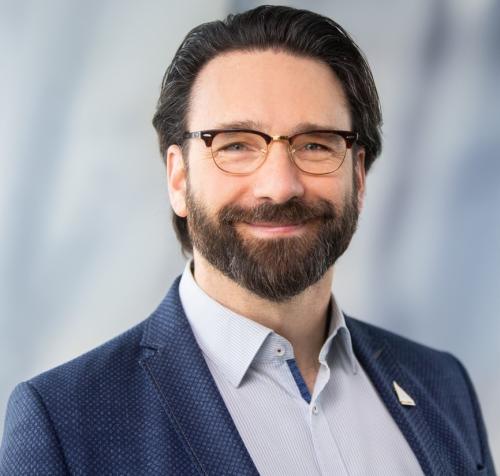Prof. Alexander Gerber
Wissenschaftskommunikation & Schwerpunktprofessur für KI in Studium und Lehre
Our work aims at crossing what is often seen as the divide between scholarship and practice. We are a community of staff and students trying to bring together research and teaching on communication as an agent of social innovation and sustainable system change. We share a vision of trans-disciplinary research that includes a wide range of stakeholders in co-production.
A school of thought we have helped to establish, is 'Evidence-based Science Communication', arguing for an improved knowledge exchange between scholarship and practice to make communication more strategic, effective, and inclusive, putting public interests at the heart of how knowledge is produced, shared, and applied in open democratic societies.
Examples for the systemic approach of our work are the first in-depth empirical field analysis of science communication research (2020), and our research-led teaching on Corporate Sustainability and Social Innovation.
Our work is guided by a trans-cultural, comparative approach towards social science, which is why we collaborate in projects with more than 80 different institutions worldwide. We also actively contribute to learned societies / associations such as dnwe (German Network for Business Ethics) , GTPF (German Society for Transdisziplinary and Participatory Research), Euroscience, iSMA (Social Marketing), IAMCR, AESIS, PCST, EASST, ECREA, etc.
The 3.5-year Science Communication course we offered from 2012-2020, integrated the 'craft' of communicating science (and sustainability issues in particular) with a robust understanding of empirical social science methodologies, covering a wide spectrum from sociology of science to sustainability studies. Insights from social psychology and political sciences inform our understanding of attitude-formation and cognition. Our students work directly with research data when exploring challenges such as complex visualisations, or machine learning for big-data analysis. They create mobile apps and develop communication plans with and for collaborating industrial or academic partner institutions. We also use computational social sciences regularly.
Over the past few years, the research in our group included several contract-research projects for industry and private foundations, as well as seven EU-funded projects (Horizon 2020 / Horizon Europe), such as the coordination of the "NUCLEUS" project on anticipatory institutional governance and culture change. Other projects such as RRING, GRRIP, TeRRIFICA and Ô, focused on social innovation and sustainability communication, including highly interdisciplinary forms of participatory design and stakeholder management. The CREATIONS project focused on integrating arts in science education.
The department also co-hosted Europe's largest Summer School for Science Communication ("STEAM"), originally funded through the Erasmus+ scheme for three years, later transformed into a social enterprise. Based on two DAAD-funded initiatives, we have established a university collaboration with the Royal University of Phnom Penh (Cambidia).
Department Chair, Prof. Gerber, has supervised science communication evaluation projects for national and regional governments, in his function as Research Director of the Institute for Science and Innovation Communication (inscico), which is also part of the recently-launched EU Green Deal project AURORA on environmental impacts monitoring for the sustainability transformation. In 2011, Prof. Gerber initiated and coordinated the first "Trend Study" on Science Communication (Stifterverband der Deutschen Wissenschaft), followed by another edition in 2018.
In 2024, Prof. Gerber was additionally appointed Research Chair for Artificial Intelligence in Teaching and Learning, coordinating university-wide discussions and efforts to establish official AI Guidelines, which has also led to coordinating one of the five AI lighthouse projects for the Digitale Hochschule (project "SokratesT").
Before joining Rhine-Waal University, Prof. Gerber has worked as a science journalist / author / film director, and later became Head of Marketing & Communications at Fraunhofer Group (ICT) for seven years. He also founded and served as editor-in-chief of InnoVisions Magazine.
Prof. Gerber serves on various Advisory Boards, for instance for the European Food Information Council and the regional chamber of commerce's (IHK) Research & Innovation Committee.
>> Publications (see ORCID)
Twitter / X: @inscico
ORCID: 0000-0002-9737-1267
Hugging Face: ProfAlex
Please feel free to connect via Linkedin.
Blog (inactive at the moment): http://scienceblogs.de/sic

